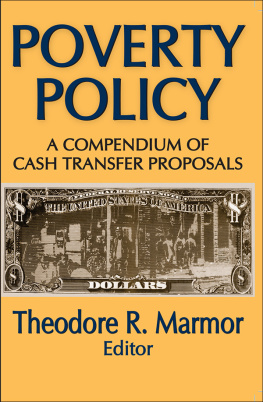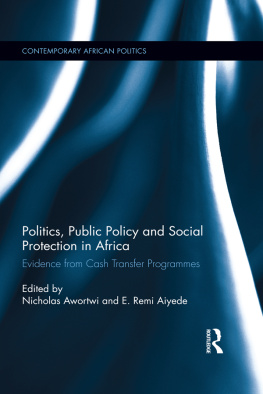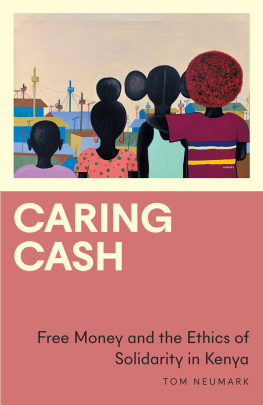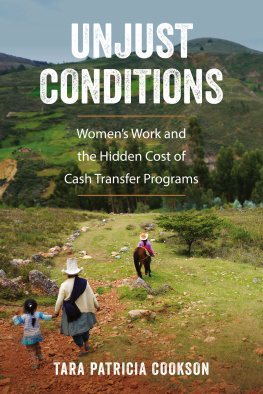POVERTY POLICY
POVERTY POLICY
A COMPENDIUM OF CASH TRANSFER PROPOSALS
Theodore R. Marmor
Editor
First published 1971 by Transaction Publishers
Published 2017 by Routledge
2 Park Square, Milton Park, Abingdon, Oxon OX14 4RN
711 Third Avenue, New York, NY 10017, USA
Routledge is an imprint of the Taylor & Francis Group, an informa business
Copyright 1971 by Taylor & Francis.
All rights reserved. No part of this book may be reprinted or reproduced or utilised in any form or by any electronic, mechanical, or other means, now known or hereafter invented, including photocopying and recording, or in any information storage or retrieval system, without permission in writing from the publishers.
Notice:
Product or corporate names may be trademarks or registered trademarks, and are used only for identification and explanation without intent to infringe.
Library of Congress Catalog Number: 2007027147
Library of Congress Cataloging-in-Publication Data
Marmor, Theodore R.
Poverty policy : a compendium of cash proposals / Theodore R. Marmor, editor.
p. cm.
Originally published: Chicago : Aldine-Atherton, 1971.
Includes bibliographical references and index.
ISBN 978-0-202-36170-3 (acid-free paper)
1. Economic assistance, DomesticUnited States. 2. IncomeUnited States. 3. Public WefareUnited States I. Marmor, Theodore R.
HC110.P63M35 2007
362.5820973dc22
2007027147
ISBN 13: 978-0-202-36170-3 (pbk)
The Presidents Commission on Income Maintenance Programs, appointed by President Johnson in early 1968, submitted its report and recommended proposal in November, 1969.
Theodore R. Marmor is an Associate Professor of Political Science and Associate Director of the School of Public Affairs at the University of Minnesota.
The Advisory Council on Public Welfare was appointed in July, 1964 by the Secretary of Health, Education, and Welfare to review the administration of public assistance and child welfare services programs and to make recommendations for their improvement. The Councils report was submitted in 1966 and widely circulated.
Robert J. Lampman is a Professor of Economics at the University of Wisconsin and a staff member of the Institute for Research on Poverty.
Alvin L. Schorr is the Dean of Social Work at New York University.
Edward E. Schwartz is the George Herbert Jones Professor, School of Social Service Administration, at the University of Chicago.
Harvey E. Brazer is a Professor of Economics at the University of Michigan.
James G. Speth, Jr., Richard Cotton, Joseph C. Bell, and Howard V. Mindus were student editors of the Yale Laic Journal. Their proposal incorporated suggestions by Professors Edward Sparer and Boris I. Bittker of the Yale Law School and Professors James Tobin and Peter Mieszkowski of the Yale Economics Department.
Earl R. Rolph is a Professor of Economics at the University of California, Berkeley.
Joseph A. Pechman is the Director of Economic Studies at the Brookings Institution.
The object and organization of this compendium require brief explanation. Its principal aim is to bring together in one accessible volume the most widely discussed plans for reducing financial poverty in the United States through cash transfers. Cash transfers are but one form of income supplementation, and a fuller presentation of antipoverty proposals would include both transfers in-kind (such as food, housing, and medical care) and human investment programs aimed at increasing the earning capacity of individuals. However, throughout the second half of the 1960s, much discussion has centered on how to reduce poverty by getting more cash income in the hands of poor people. This volume presents some of the widely diverse cash transfer proposals which have grown out of these reformist debates.
The proposals have been grouped to facilitate comparison. Readers who have tried to follow the American debate over cash transfers will undoubtedly have been struck by the confusing ways in which proposals are described and compared. Proposed beneficiaries sometimes provide the basis of comparison, as with proposals of old-age pensions or child allowances. In other cases, plans are described and compared as negative income taxes or welfare reforms by virtue of the administrative changes they imply or the mechanism for reducing benefits with respect to increased income. For reasons set out in the . These categories are not, of course, mutually exclusive. The problems are inter-related and the solutions to any one affect the others indirectly.
The first two chapters of the book were included to aid readers in intelligent discussion and comparison of the proposals. is used as intended, this volume will present not only the raw materials of policy discussion, but also a way of making sense of those materials. Financial poverty will, even under the most optimistic assumptions, continue to be an issue of concern in the foreseeable future; the systematic review of current proposals of reform should assist the intelligent discussion of future possibilities.
My interest in antipoverty policy proposals was stimulated and supported by the Institute for Research on Poverty at the University of Wisconsin. As a consultant to the Presidents Commission on Income Maintenance Programs, I was further encouraged to consider how various plans could be meaningfully evaluated. The Poverty Seminar of the American Academy of Arts and Sciences provided a forum for which the analytic scheme of was first formulated. Time to bring together this compendium was made available in 19691970 by fellowships from two institutions concerned with questions of public policy: the Adlai Stevenson Institute of International Affairs in Chicago, and the John F. Kennedy Institute of Politics at Harvard. My research assistant, Carol Mermey, provided substantial aid at every stage in the formulation of this book.
Contents
Theodore R. Marmor
Robert J. Lampman
Alvin L. Schorr
Edward E. Schwartz
Harvey E. Brazer
Yale Law Journal
Earl R. Rolph
Joseph A. Pechman
PART ONE
The Analysis of Poverty and Poverty Policy
CHAPTER ONE
Poverty in America: Dimensions and Prospects
THE PRESIDENTS COMMISSION ON INCOME MAINTENANCE PROGRAMS
The Poor
The postwar period has witnessed a remarkable improvement in the material welfare of most Americans. Even with the effect of inflation taken into account, median family income grew by 76 per cent between 1947 and 1967. The proportion of families enjoying a total income of $10,000 or more increased from 22 to 34 per cent during the same period. And, in recent years, we have taken justifiable satisfaction in the reduction of poverty from 22 per cent of the population in 1959 to 13 per cent in 1968. But the fact remains that 25 million persons are still poor.
Thousands of pages of statistics about the poor have been tabulated and published. The poor have been measured, surveyed, and sorted into numerous categories, some of which are summarized in But in the end, the diversity of the poor overwhelms any simple attempt to describe them with statistics. What may be said simply is that millions of our fellow citizens are living in severe poverty, with few prospects for a better life, and often with little hope for the future.







